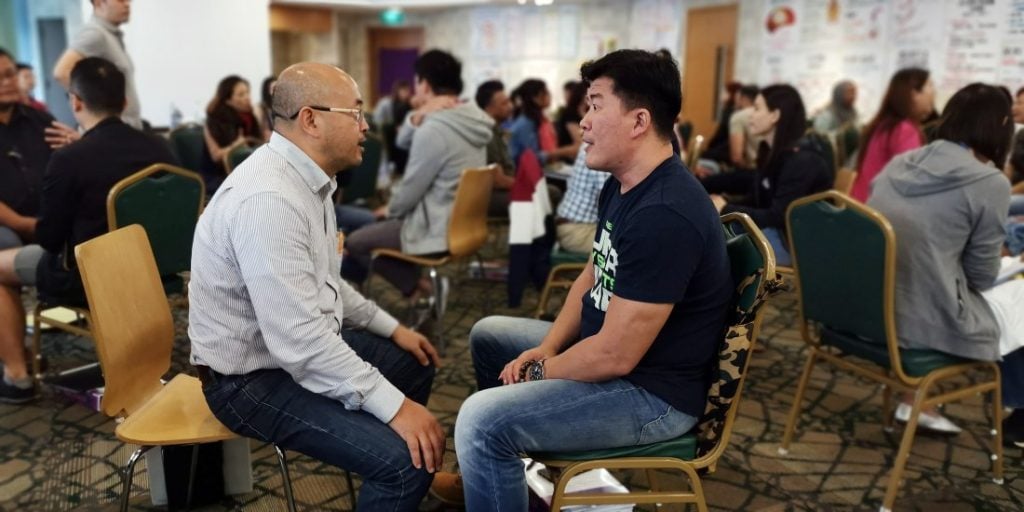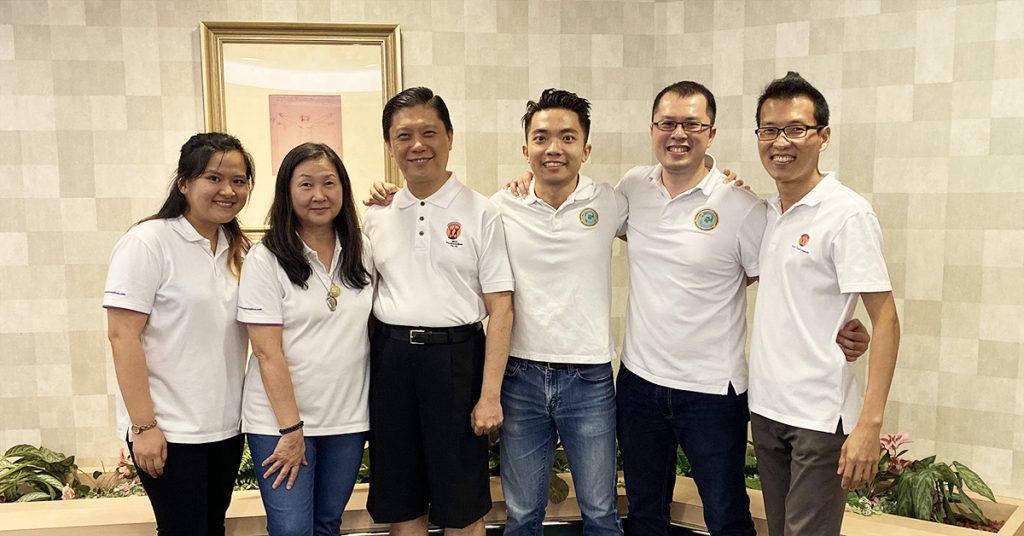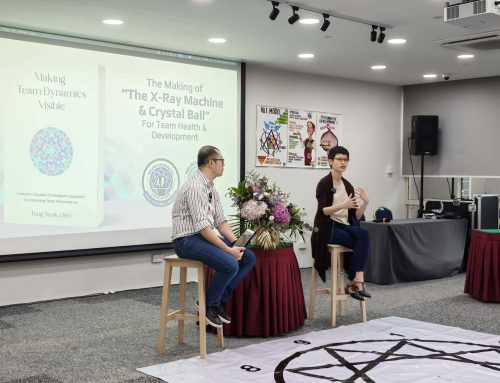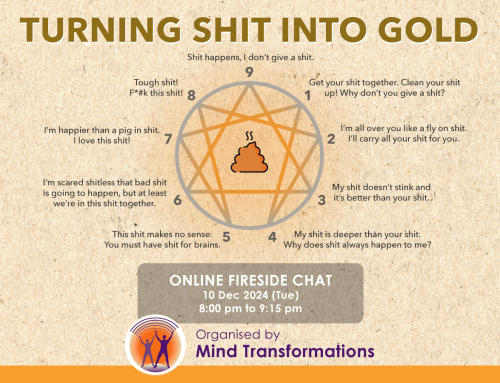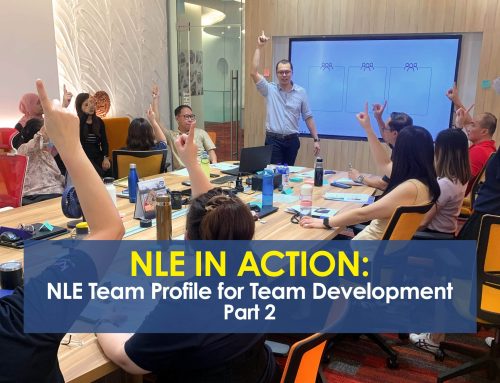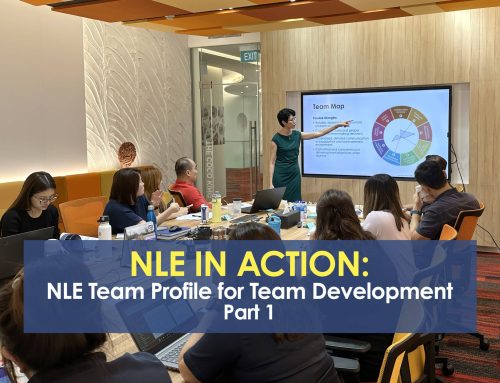How enabled are your people?
We are living in exciting times where real and virtual worlds are converging. The dynamic and disruptive forces of the fourth industrial revolution change the way we work, interact with one another and live.
Today, it is tempting to refer to technology as the solution. Paul Daugherty and James Wilson, authors of the book, Human+Machine: Reimagining Work in the Age of AI, pointed out that “organisations quickly realise that humans are necessary to leverage the full potential of intelligence technologies.”
As more roles and jobs are assisted by digitisation, automation and developing A.I, the workforce is required to step up. Executives and managers often find themselves needing to respond to requests of greater scale, complexity, uncertainties and urgency than ever before.
Inevitably, people are now required to lead others, regardless of their title, experience and position.
The question, how enabled are you and your people in navigating and leading the landscape of the fourth industrial revolution that is already happening?
Coaching the deep structure of people that drives transformation in the 4th Industrial Revolution
In NLP, the surface structure is what people say (communicate) and do (behaviour). Deep structure is the rich meaning, values and worldviews underneath what people say and do.
Coaching people at their deep structure is where real transformation happens. It is also where the deepest part of you lives.
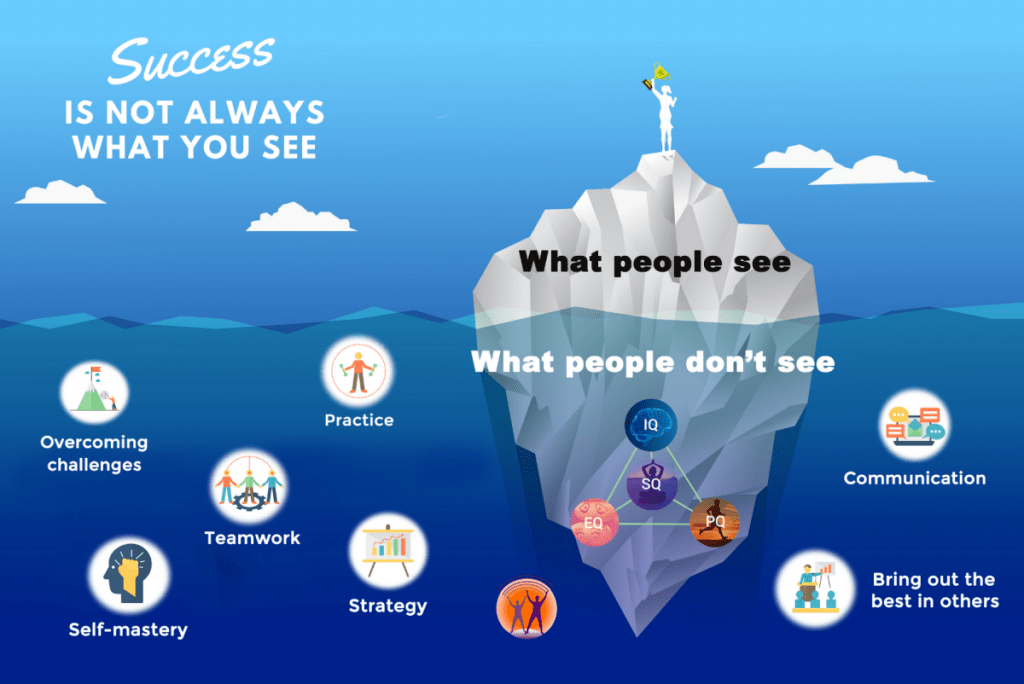
However, most people spend their time investing in the surface structure of change. In the corporate setting, it is a multi-trillion dollar industry where companies invest a lot in technology, data, marketing, branding and even training and recruiting talents.
From the context of change, the surface structure is about the HOW and the DOING part. It involves skill sets, actions, solutions, systems, processes, metrics of performance, techniques and methods.
The reality is, most people don’t go to the deep structure.
They don’t go to the depths of unlearning and relearning who they are. They spend most of the time going from one seminar, training, courses and programs to another, without shifting their counterproductive attitudes and worldviews.
By focusing mostly on the surface structure, people find themselves stuck in situations or scenarios. When faced with volatility, uncertainty, complexity and ambiguity (VUCA), they find themselves limited by external resources such as time, money, knowledge, data, information and capabilities.
When you focus on the deep structure of change, you tap into your inner resourcefulness such as creativity, agility, resilience, values, influence, building trust, compassion, pattern recognition, multi-dimensional thinking and so on. The deep structure helps to build a healthy people-oriented culture to thrive in the 4th Industrial Revolution.
Working on the deep structure is one decision that overcomes the hundreds of perceived limitations on the surface.
Value creation is a high-leverage skill
As more and more products and services are digitised, leverage shifts from material resources to value creation.
It is no longer only the amount of time you spend at work or working harder to produce results. It is also not about the data and information you know as we have online learning platforms, search engines and digital tools to access those – creating a level playing field.
It is about leveraged value.
For example, when you go to buy an iPhone, you don’t ask the sales rep how long it took to make or produce the phone. Most people don’t care how many hours, human resources and physical materials Apple spent creating, designing, or delivering the phone. All you care about is what value will you get from owning an iPhone.
Speaking of which, as we are living in a world of technological abundance, the value of information alone has cratered.
Likewise, your career leverage isn’t just your knowledge, skillsets, experience, qualifications and what you do. Many people whom we consulted are feeling insecure in their jobs. Even though they have rich working experiences, they face more competition. More & more people are moving ahead of them despite being less experienced in the industry as they demonstrate agility, fortitude, attitude, influence and creative thinking.
As we discovered, the ones who thrive in this competitive market are those who can create high value for their clientele, stakeholders or target audience. What defines high value then?
What do you bring to the table?
How will people’s lives improve as a result of your value creation?
What benefits do you deliver for others?
How will your organisation grow as a result of your valuable contribution?
Enhancing your value creation through multi-intelligence coaching
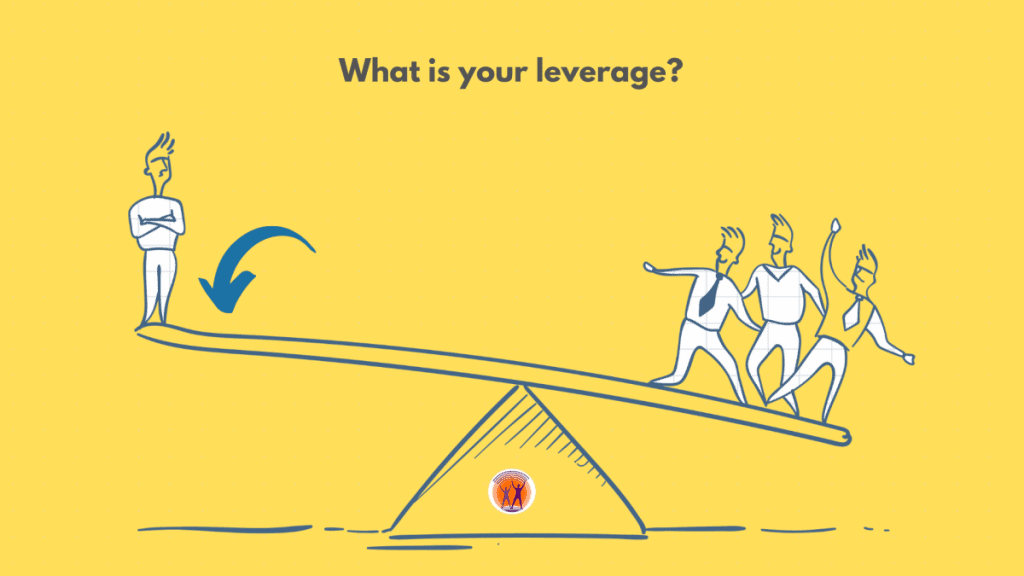
Today, Human Resource (H.R) industry has progressively shifted from being an administrative and operational function to a more strategic and advisory one. The determinant of growth is about delivering strategic VALUE.
Someone who has a high-value advantage is highly sought after or headhunted. He or she’ll then be valued, trusted, respected and seen as credible. Hence, he or she has a higher influencing power in the industry and is continuously looking for ways to raise social or global impact. These people thrive because they manage to SCALE their VALUE even with limited resources like everyone else.
All these would mean that your ability to unlock people’s potential then becomes your competitive advantage. It is about COACHING people rather than telling people what to do or giving them the fish.
In today’s context, the true accelerator of success is bringing people together to develop the right abilities & attitudes to grow the culture. The result? A highly engaged and quality network of people that becomes your unfair advantage in the world where data is commodity.
Thus, coaching becomes an asset for creating strategic value, more than a role, title, profession, business or career. One’s ability to coach ENABLES people to act, respond, interact and make decisions from resourcefulness than limitations.
When only a few high performers bring in most of the results, it limits the growth of the company. With a multi-intelligence coaching process, you can increase the value in people by raising ownership in them. As a result, the company can save costs in sourcing and hiring new talents. With more of your current employees stepping up, your company can thrive in difficult times with a lean organisation.
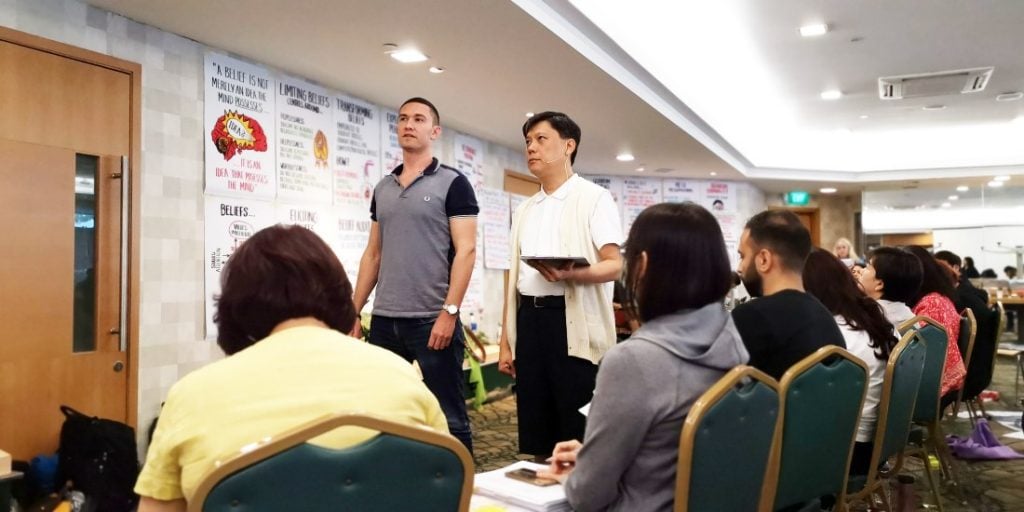
By helping many leaders increase their value creation, we discovered these five important multi-intelligence coaching skills:
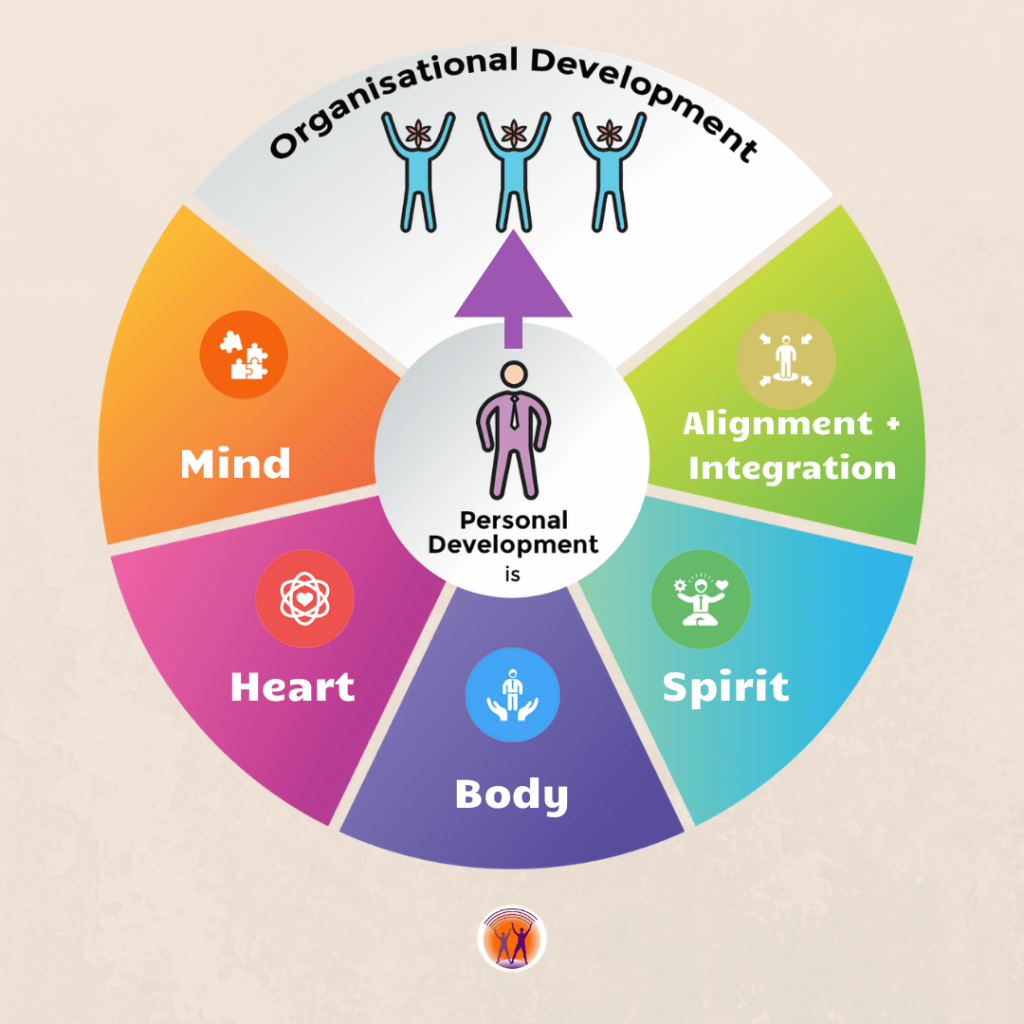
In summary, everything becomes intimately interconnected in the fourth industrial revolution. Each team player has an impact or implications to the organisation. As such, personal development is organisational growth.
[inf_infusionsoft_inline optin_id=”optin_2″]


